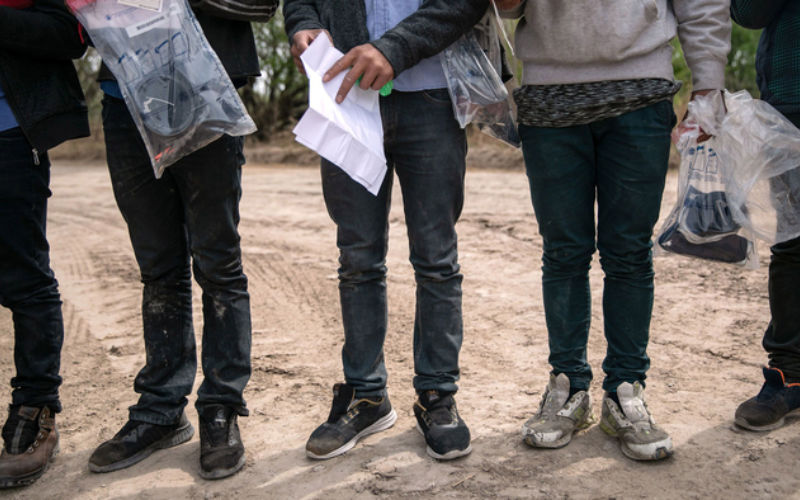France Tightens Immigration Controls After Deadly Mulhouse Attack

In France, the control of immigration is more than ever at the heart of the policy of the government of François Bayrou, after the attack that occurred on Saturday, February 22 in Mulhouse (Haut-Rhin), in which a 37-year-old Algerian in an irregular situation is accused of having killed with a knife one person and injured seven others.
An Interministerial Council for Immigration Control (CICI) was held at 2 p.m. on Wednesday. On this occasion, Prime Minister François Bayrou and ministers Bruno Retailleau (Interior), Jean-Noël Barrot (Foreign Affairs), Catherine Vautrin (Health and Labor), Astrid Panosyan-Bouvet (Labor), Gérald Darmanin (Justice) and Yannick Neuder (Health) discussed "the control of migratory flows" and the "national, European and diplomatic means to strengthen controls", but also the transposition of the "European Pact on Asylum and Migration" - adopted in May and expected to come into force in mid-2026 - which provides for a tightening of "border screening" and a solidarity mechanism between the 27. This meeting had been announced at the end of January before being postponed.
To recall, the CICI had been created in 2005. The body has recently been reactivated by the French Minister of the Interior, Bruno Retailleau "in the context of significant immigration" and "to respond to the expectations of the French in favor of greater control of migratory flows", by a decree of January 22.
This exchange between the members of the government and the Prime Minister takes place after the attack that occurred on Saturday, February 22 on the sidelines of a demonstration in support of Congo, not far from the covered market in Mulhouse. A man, armed with a knife and a screwdriver, attacked passers-by. He is a 37-year-old Algerian in an irregular situation. The toll is one dead and seven injured.
After this knife attack, Bruno Retailleau has again estimated that it was necessary to engage in a "power struggle" with Algeria on the issue of immigration. Algiers has repeatedly refused to take back its national. "He had been presented ten times to the Algerian authorities so that his country of origin would accept that we send him back home. Ten times, the answer was no," denounced François Bayrou on Monday. For him, Algeria’s refusal to take back its national, who was subject to an Obligation to Leave French Territory (OQTF), is simply "unacceptable".
Related Articles
-

Tragic Forest Collision: Moroccan Children Critically Injured in Fontainebleau Crash
29 August 2025
-

French Pension Crackdown: Auditors Target Expat Retirees and Working Pensioners
29 August 2025
-

Teen Sentenced for Islamophobic Sticker Campaign in Orléans, Sparking Hate Speech Debate
29 August 2025
-

Domestic Violence Escalates: Husband’s 67 Calls and Threats Lead to Suspended Sentence in Versailles
28 August 2025
-

Illegal Immigrant Jailed for Brutal Knife Attack on Roommates in Montpellier
28 August 2025